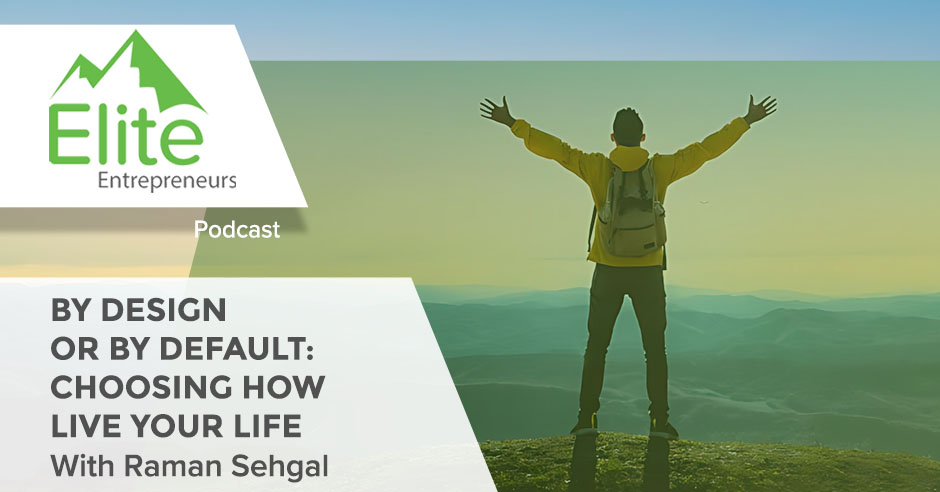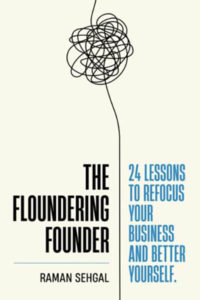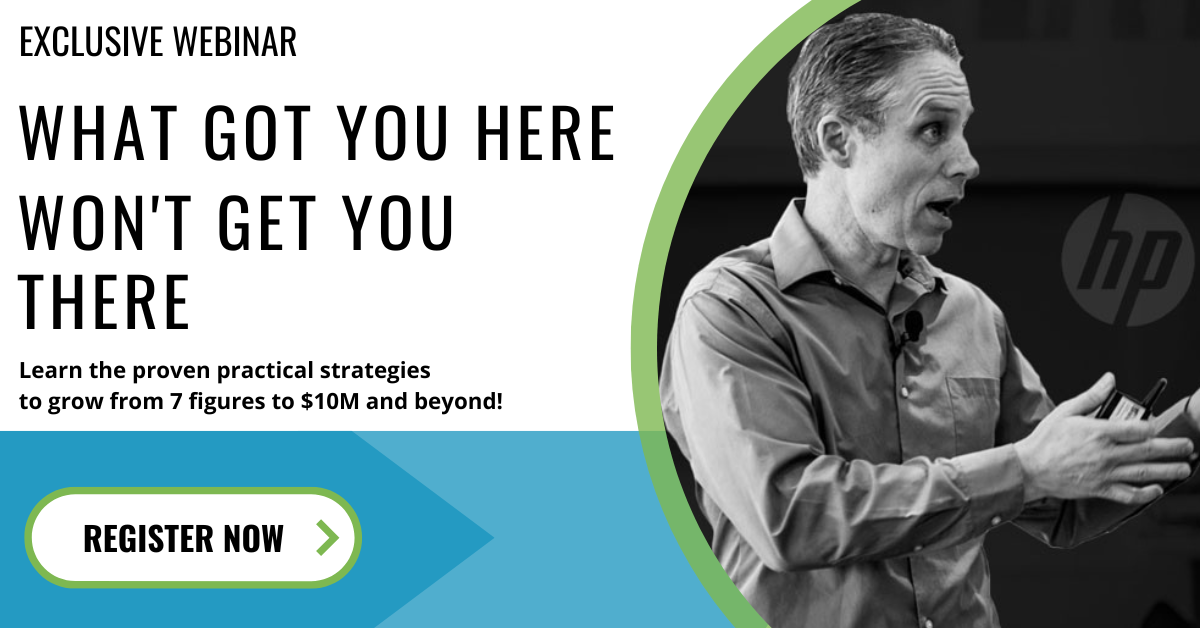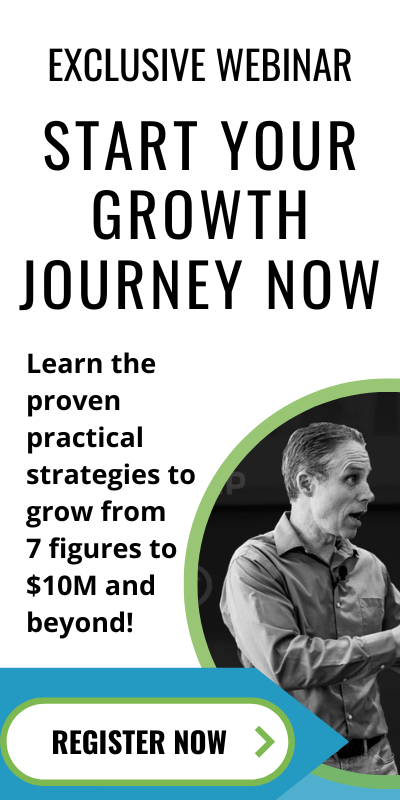Episode 128: By Design Or By Default: Choosing How To Live Your Life With Raman Sehgal
Watch the episode here
Listen to the podcast here
We only have one life. How do you want to live it? In this episode, Brett Gilliland sits down with Raman Sehgal as he shares his growth journey as an ambitious entrepreneur and examines the role of design in shaping the life we choose for ourselves. Raman is the founder of Ramarketing, the host of the Molecule to Market Podcast, and an international best-selling author. Tune in as Raman talks about how he created a life that he loves and reveals how you can do just that as well with your own life!
—
I’m especially excited in this episode to introduce our guest. His name is Raman Sehgal. I’ve been learning that Raman is a super fascinating and accomplished entrepreneur. I look forward to having all of you learn more about him. Let me tell you a little bit about him before we jump into the interview. Raman is the Founder of several niche companies, including Ramarketing, a multimillion-dollar international agency that helps companies get noticed in the global life science space.
I also learned that Raman is an author. He speaks. He has a podcast. He blogs. He has all sorts of things to share his knowledge, mistakes, and learnings in an honest manner. We will find that especially helpful for our seven-figure business owner audience. Raman, thank you so much for spending time with us. Welcome.
Thank you very much for the kind introduction, Brett. It’s a pleasure to be here.
We were talking about some of the real experiences that we have as business owners as we’re trying to grow. In your case, no exception, you grew a multimillion-dollar agency and grew through some of the stages that we’re especially interested in this community. I’d love to start with you giving us a little bit of insight into Ramarketing, who you focus on, and what you guys do. I’d like to dig in as soon as we can on some of the things you encountered in your growth journey.
The backstory, as I started in marketing, is going to be several years from now. It was an unintentional accidental agency that I did in my spare time while working as head of marketing for a pharmaceutical manufacturing business. That business went through some change. One business was split away, and they asked me to do their PR and SEO in my spare time. I figured that sounded quite fun and a bit few extra bucks. That was the start of the strategy there. There was no business plan or anything like that. I managed to get a few more clients and grow the business for a few years. My job effectively became a client. I was very fortunate that my employer said to me, “You need to do this Ramarketing thing, and we’ll become a client.”
For 5 to 6 years, we were a multisector agency doing all kinds of stuff for anyone that knocked on our door, which led to a lot of pain, which I’m sure we’ll get into. In 2016, I had a bit of a meltdown in terms of what I am doing with my life and what I am doing with my business. It hit a real rut, which I imagine a lot of your readers will do at some point. Probably around the million dollar mark, maybe a bit less than that, where it all became less fun. It wasn’t less about me working on all the projects I had to learn on how to run a business and all the stuff that comes with that, which is much less exciting.
I decided to niche the company in a sector where we already had a lot of clients, which was the drug development supply chain, which doesn’t sound the sexiest in the world, but it’s probably the area of the market that’s responsible for the COVID vaccines that probably run in your arms. It’s quite an important part of the market.
That accelerated our growth because not only were we specializing in a niche sector, but it was also a global sector. For me, it gave us the potential to become an international agency, which is what I wanted to do. We’re 55 people now. We have an office in Boston and two in the UK. We’re going to open one in Europe soon. Year-on-year growth has been about 50% year-on-year in the last few years. I had a lot more hair before those years, and it disappeared by the day. Hopefully, that gives a kind of in-a-nutshell version.
That’s fantastic. I can totally relate to the hair comment. This is probably a good point to talk about the fact that you put out a book called The Floundering Founder: 24 Lessons to Refocus Your Business and Better Yourself. It sounds like that book came out of your own experience going through that hard point that you talked about right around that seven-figure mark. Not that it was the only place that you had a hard time or had lessons learned, but certainly the first time, it sounds like you experienced feeling this thing of, “This is not fun anymore.” I’d love to have you share some of those real stories. Not that you got to give away all the secrets from the book because people should get the book, but just those insights from that experience and time in your life. What was it like?
It is completely based on the mistakes and pains that I’ve gone through on my own personal journey. We can come onto it, but a lot of it is not just about the business. It’s also about making time to invest in yourself. One of the things I see with busy professionals, particularly founders, is your readers will be completely consumed by that business. It will eat them alive. They will think about nothing else. Even when you’ve got several kids, you’ll probably think about your business more than your kids, which is crazy and makes no sense.
It does take over your life, and you have to make time for your own training and development, networking, and all that types of things because if you allow your business to eat you alive, it absolutely will do. Some of the stories and pains, I can share. How we ended up nicheing is quite an interesting story. Either I came across something and ended up creating a matrix, which is in the book, you look at your clients in a four-quadrant by two axes of high maintenance low maintenance profit low profit. You end up plotting your clients. When I did this, we had about 30 clients. We plotted them in, and it turned out that seventeen of those clients were in the low maintenance low profit but nice clients.
If you allow your business to eat you alive, it absolutely will do. Click To TweetThere were the other ones, and they turned out all the industrial life science B2B clients where we excelled. We had a bunch on the other side, which were typically smaller clients, which were very high maintenance, which was such hard work. That analysis sounds crazy, but I didn’t do it until 6 or 7. It changed my outlook on the business because it made me think about, “Why on earth are we doing business with these types of companies? Why are we trying to even track them?” We lost a couple of pictures around that time as well.
It was a real head-and-hand moment of like, “What are we doing?” That ultimately led us down the track of thinking about, “Who do we want to exist for? Who do we want to serve? What is the market?” That ultimately led us from being a generalist agency doing whatever for whoever. If you do that, you tend to get lost. It certainly is, in my experience. We ended up nicheing down on a very niche sector. I knew the market was valuable. I knew it was global. It’s funny looking back now because it seems like a smart decision.
At the time, it was one of the scariest things I ever did because it was effectively saying bye to half of our clients. They didn’t disappear overnight. When we changed our communications to say, “We do pharmaceutical stuff,” the non-pharmaceutical clients were like, “What the heck’s going on?” There’s a great book called Same Side Selling that I read years ago by an author called Ian Altman. I read Ian’s book around that time as well. That book is about understanding what a good fit is for you as a business, and not all customers are a good fit. We went down the journey of learning to say no to customers.
We’d had a real nightmare project with a client. The best way I describe it is they were buying a 1990 Toyota Corolla. That was their budget, and they were expecting a Ferrari in exchange. It was one of the most painful projects I’ve ever worked on. There were red flags that I completely ignored. I was too enamored by the client, where they were from, and the sector that we’re in. I thought this was going to be our route into this part of the world, and it was an absolute disaster. Off the back of it, we created a bit of a checklist, which was when we meet a new client, do they tick these boxes? If they don’t, we need to consider this, or we need to walk away.
Those two lessons and mistakes that we made for many years were the making of going in the right direction almost. Those are a couple that I’m sure some of your readers might resonate with. That worked for us in becoming a specialist in our space. It was a real game-changer for us as an organization. You get more clarity when you do that. What I mean by that is, for example, we would be going to any business event where there’s a business person. We’d be sending a team or whatever.

Living Life: The mistakes we made for many years were actually directing us in the right direction all along.
All of us were like, “Why are we going to those events? There’s no point.” Ramarketing messages on our website became less about, “We can help you with lead generation,” to, “If you work in clinical manufacturing and you’re responsible for this,” and the like. The messaging was so on point. From our experience, the clarity it brings is huge. Even who you recruit, what you say, and everything in your business becomes a lot narrower, but in a good sense. Those were some of the things on our journey that helped.
Thank you for sharing that. It may have reached cliché status by now, but it’s that whole idea of niches leads to riches. When you can get so focused and narrow that you become the expert or the go-to for this little space. I don’t mean little like insignificant, but very specified. This is it. That tends to go well for the people who’ve cracked that code because you’re not going everywhere, like you said. Your efforts are much more directed. They’re much more focused. You don’t have to dilute a lot of attention and resources across a lot of options. I’ve only ever heard good outcomes when people figure that out.
One way of looking at it is we became invisible to 99.99% of the world, but we became unmissable to the bit that mattered to us. There is skill involved in working out what that niche is. The other way of doing it is to become a real specialist in one service. You become a world-class web agency or whatever and try not to do everything. For smaller businesses, it’s a better route to market. We’re not Amazon, Google, or Facebook trying to market to everyone. It’s funny because with the riches in the niches, I never came across that until about a few years ago. I worked it out myself, and then I was like, “If I only had opened my eyes to buying a few books years ago, I could’ve saved myself.”
We become invisible to 99.99% of the world, but we become unmissable to the bit that really mattered to us. Click To TweetYou had no time for it because you’re trying to be everything to everybody.
Around that time, my wife called it a mini pre-midlife crisis because I was in my early 30s at the time. It’s funny because I didn’t just change the focus of the business. I had more focus on myself as an individual like, “What do I want to achieve in life? Where do I want to go? What does success look like? What am I going to regret if I don’t do it?” That ultimately led me down a personal journey of fulfillment as well, where I’m a much healthier and happier person now than I was a few years ago.
You’ll know yourself running a business, and the stress that comes with it can lead to terrible habits, whether bad eating, alcohol, drugs or extra-marital behaviors. I’ve seen the whole lot, and I’m sure you have as well. For me, it was not just taking stock of the business but taking stock of my own life as well. A lot of entrepreneurs have to watch themselves in that area as well because, as I said before, it is incredibly consuming to run a business.
Thank you for bringing that up. If you don’t mind, I’d like to dig deeper into that. I found a direct correlation between the health and well-being of the founder and the health and well-being of the business. We can say over and over again that we got to get the founder and the business separated. A lot of what we do is help people get themselves extracted from their creations.
Around $1 million, usually, they’re very central to how everything runs still. They hit a cap because they can only keep their arms around so much. At that point, we got to figure out how to set a vision, organize some work, get a team built, and do all those things. The health of the business and the founder seemed to be pretty tightly correlated, even if you successfully separate the two. What was the moment you realized, “I got to change something for myself?”
I’ve read a book called The Miracle Morning. A lot of that book is about creating good habits in your life specific to a morning routine. For me, it was building a routine. I’ve always been quite into health and fitness anyway but making sure I have time for health and fitness, making time to read, do affirmations, and meditate. Giving yourself an hour in the morning, even before the kids get up, has been life-changing for me because it aligns your day. It sets the tone. The flip side of it, and my wife laughs, if I have a lie in and something’s off in the morning, she’s like, “You just can’t get your day.” I’m much more agro and a little bit more prickly. I’m not a particularly prickly person, but something’s not quite right.
For me, it’s about making time for yourself in the morning. I set out a load of goals for that year and 5 years and 10 years. I made a financial goal when I did this a few years ago. I want to earn X amount of money. At the time, it was an astronomical amount of money. I did it in two and a half years. I didn’t look back and say, “It was done in two and a half years.” Because I was reaching for the moon, you land in the stars or whatever the right phrase is. There’s a lot in that, and to think bigger than whatever you think is possible.
Let’s say, for example, it was earnings related. I want to have two offices and earn $500,000 a year. If that were what it was, then I probably wouldn’t have achieved what I’d achieved in terms of growing an international business because that would’ve been my benchmark of success. It’s fascinating that you can go beyond what you think is possible by being a bit more ambitious. Going back to your question, that period in my life where I felt a bit lost and like, “Why am I doing all this?” and putting some clear goals in place, which sounds cliché and boring, but there’s a reason why successful people have goals. There’s a reason how did this person become successful. It starts with their waking up early and reading books. It’s not for everyone, but I’m pretty sure it’s for 95% of people out there. If you’re not doing it already, please do.
It turns out that there are patterns in people and businesses. There are predictable things. If you do these steps, you get these kinds of outcomes. I appreciate the way you shared it. It made me think about this idea of reaching, whether for stars, the moon, or whatever. It turns out that most of us achieve what we reach for. If we’re not reaching, then we get that. We get where we are if we’re reaching and doing things. I love that Miracle Morning concept as well. Let’s get centered first thing. Let’s get ourselves anchored, centered, aligned, or focused, however you want to tee it up. Let’s get that for ourselves, our loved ones, our businesses, and the people we work with because we’re better when we do.
Let’s be clear about what we’re trying to create. You didn’t use the word declaration, but that’s what you were doing with those goals. It’s like, “I am going to create this in the world.” When we don’t do that intentionally, we live by default, which is not a phrase of mine. Many people have said that. You want to live a life by design or by default. You’re another example of somebody who said, “I’m going to choose what I’m going to be and what I’m going to do.”
It’s funny because a big theme in the book is the concept of intentionality. If you are unintentional about what you want to do with your business and what you do with your life, you’re going to end up on a path that you didn’t want to be on. You have to paint a picture of that path. It’s interesting what you’re seeing around the commonality between the health and well-being of the founder and the business. At the same time, I also outlined the vision of the business. It wasn’t like, “We want to be an X million agency.” There was an element of that, but I had this vision, and I shared with the team that one day we’ll be drinking cocktails on a rooftop bar in Tokyo, Japan.
It was exciting as a concept for our team anyway. What it meant was we had won a Japanese client in Japan, which is one of the most conservative and regulated industries in the world. We must have done something right to achieve that goal. It was a fun but purposeful goal that I set for the team. Before COVID, we would’ve got there because we’ve got a client in Japan, but we haven’t. I got close to it. Six months before the pandemic, we went to Taiwan, which is not too far away. We had drinks with the CEO of one of our clients on the rooftop bar in this huge building on top of Taipei. It was a surreal moment because, for all intents and purposes, it was that dream being realized. It was just a moment.
Back to your point about reaching, you don’t set ambitious goals. You’re not going to reach for anything, and you’re going to get lost and bimble around in life. It’s one of the reasons I love your show. It’s bringing like-minded people together that can share mistakes, learnings, and ambitions and recognizing that it’s not always plain sailing. I was chatting to a guy who’s the CEO of a $100 million pharmaceutical manufacturing company. Their growth has been phenomenal. He’s saying it was a car crash behind the scenes, as it’s so difficult to recruit, keep up with demand, and keep the culture together. It doesn’t matter what size the business is. These are the same challenges all of your readers going to face day in and day out for the next few years. They won’t go away, unfortunately.
There’s a scale of complexity and all those things. I love that you shared that story about the dream or the vision of being in that place in Tokyo with one of your clients celebrating. In actuality, you had an experience like that in Taiwan. Now you have the Japanese customer, and maybe someday in the near future, you’ll have that moment in Japan. You live in the UK now. Before, you lived in Boston. Hopefully, this isn’t too far afield.
We always talk about this in terms of a Babe Ruth baseball player situation where he points out where he’s going to hit the home run. He points at a specific section, row, and seat. If you had a laser on the end of the bat, it would point at a place, like a rooftop bar in Tokyo, home run. When he hits the home run and doesn’t land exactly in that section, row, and seat, and it’s a little bit to the left or right, it’s still a home run. Your vision was accomplished. You were there. You did it. That’s the way I see it.
Thank you. Funny enough, I used to live right near Fenway Park as well. We moved back to the UK after spending three years in Boston. What a phenomenal experience living and working in the US. I learned so much. I met so many great people. One of my things was I wanted to live somewhere else in the world. I wanted to have an international business. I started my business where you’ve asked me how it started to earn a little bit more money so my wife and I could go traveling.
The irony is we moved our entire family to the US for a few years. We live in a privileged position where when you run a business, it can enable the right areas of your life like it did for us. What an experience for my children. Two of them have got funny accents now because of living in Boston. They’ve got these weird Northeast American and Northeast England combination accents, and no one in the world understands what they’re saying anymore.
The beautiful thing is that you are declaring and saying, “I’m going to do this thing.” I’ve known you enough now to know at least I believe you’re not an arrogant person. It’s not out of arrogance. It’s out of intentionality. You used that word earlier in your book. It apparently has a lot of references to that. We can either run on somebody else’s treadmill or create a path for ourselves. It’s just so fun the freedom available to business owners, and yet it’s so sad the prison we create for ourselves in our businesses because we don’t know how to be fully free.
I wish we had a lot more time. Raman, could you share one thing that you realized was keeping you back in your business? Not the niches thing. That was great, but in terms of the business building, whether it was getting the right leaders, doing your quarterly planning, or creating some cultural thing. What’s your favorite thing to talk about that gave you more freedom that helped you experience the benefits of owning and running a business?
The best answer I have was when I moved to the US, I hired a CEO to run the business. What that did was it freed me up to do the stuff where I add the most value. Most of us, especially if you’ve run a service business, are probably not that good at the nuts and bolts of operations, systems, IT, HR, and all of that stuff, which is what suffocated me. The journey to find the right CEO was not an easy one. Emma, who’s been with us for over a few years now, the most important thing for me was she was a good culture of it, and she would bring the same values and care for the team, especially because I was moving to the US at the time.
I remember she even said to me, “The last thing you said to me is don’t break the culture.” Culture evolves when you’re growing as quickly. I’ve heard loads of times in any growing business as well here that it’s not the same place it used to be. Not when you’re growing 50% to 60% year and year. You either want to be on the rocket ship, or you don’t. You have to accept that the culture evolves and changes. It doesn’t mean it goes rotten or bad. It’s just a different place to be. For me, what that did was it was a huge decision because not only was I moving to the US, but it also meant that the house was taken care of to an extent. It ultimately allowed me the freedom to grow the business, set up the business in the US, recruit a team, win clients, and help raise our profile, particularly on the East Coast.

Living Life: Culture evolves when you’re growing as quickly. Growing businesses are not in the same place it used to be.
It’s not the right journey for everyone, but for me, even my day job now is not full of stuff I don’t want to do. Speaking to you now and earlier on, we have our own podcast in the sector called Molecule To Market that we do. We’ve done two interviews. I’ve written three blogs for Ramarketing. It sounds like that’s a nice job to have, but I can do that stuff better than most people. It’s good for the organization. It has a halo effect on the company. My call after this is to speak to someone that refers to this business like a strategic partner. That 30 minutes between him and me, I could use that 30 minutes to be searching for flights. What a terrible use of time.
I could share something that I did, which was helpful. When we took an investor in 2017, she was a really good friend as well. She made me write down all the things that I do, like all the tasks almost. The list is literally in the book where it says business development, marketing, client work, and all the stuff. I was allowed to circle the three things that would add the most value to the business that I loved to do. For the last few years, we’ve focused the entire business on allowing me to do that and delegating, eliminating, and getting rid of the rest.
It’s a total win-win. I could have put on a lot, like going to the beach every day. No. It’s got to be a value add. I’d certainly recommend that exercise to people. That was part of the journey to get a CEO. There were twenty things on that list that I didn’t like doing, and I wasn’t very good at, and that we could pay someone a good salary to do, but the opportunity cost was I got eighteen days a month back to play with, which ultimately has benefited our business. Hopefully, that is helpful to some of your readers who go through a similar situation.
It’s super helpful, Raman. Thank you for sharing that. I have a good friend who was the CEO that I worked closely with at Infusionsoft. Our audience has heard me talk about that in the past. He would say this, “Entrepreneurship is an exercise in relinquishing control.” That’s a shorthand way of talking about the exercise you did with the list. There are all the things that I do, and I got to figure out how to organize it in a way that I can give it away. Somebody else has got to take this so I can do these high-value add things that are good for me personally. I like to do them. I feel satisfaction. I love the tool. It’s a super great practical way of how I get rid of things.
I heard someone say once, which is, “Focus on the $1,000 an-hour stuff and not the $10 an-hour stuff.” There’s a lot huge amount of judgment and subjectivity over that $ 1,000-an-hour stuff, but in my world, it’s building relationships with investors and private equity people. On the face, it sounds like the most boring job ever, but they are buying our clients and companies in our sector. Because I’m the founder of the company, they’ll entertain a conversation with me. If it’s one of my team, like a designer or a developer, they’re going to be like, “Why the heck is this person getting in touch with me?” You have to grow into that role as a founder.
When I was in the US during COVID, I didn’t meet a lot of the people recruited. They looked at me in a very different light from the other people that were already there. You have to grow into the understanding that when you say something, people listen to you and care what you think. You have to watch your mouth. You have to be very careful. That’s a journey I’m still on where I haven’t quite cracked it because you find yourself very quickly being seen as a leader and not a manager or something like that. That brings a completely different level of responsibility.
Raman, this has been a complete joy for me. I know that people who will read and re-read this and go back and get some notes will benefit. Will you share how people can get ahold of you or learn more about Ramarketing or your book? What’s the best way to connect with you?
We have the domain RamanSehgal.com. If you go there, that is a gateway to all of the stuff that I do. There are some blogs on there. From there, you can download a couple of the first 50 pages of the book for free. It’s not a money-making exercise. I genuinely have written it to help people. Download it. There’s a link to Amazon for The Floundering Founder if you’re interested in buying it. There are links to Ramarketing and a couple of other businesses that I’ve started as well. I wanted to say thanks so much. You’re doing an amazing job bringing this community together. I wish years ago this existed because it probably would’ve helped me in some difficult times. It still helps me now and has me share the experience. Congratulations on the success at Elite and what you are doing, Brett. Long it may continue.
Thank you so much. I wish you a ton of continued success. Keep being intentional in your personal and business life. You’re leading the way for lots of other founders to figure it out. Thanks again. For all of you reading, please share, like, subscribe, and do all those things so that we can help as many seven-figure business owners as possible get this content that we’ve received from Raman, his own life story, and his own experience. It doesn’t get any better than that. Let’s help as many people as possible. We’ll see you next episode.
Important Links
- Ramarketing
- The Floundering Founder: 24 Lessons to Refocus Your Business and Better Yourself
- Same Side Selling
- The Miracle Morning
- Molecule To Market
- RamanSehgal.com
About Raman Sehgal
 Raman is the Founder of several niche companies including ramarketing, a multimillion-dollar international agency that helps companies get noticed in the global life science space.
Raman is the Founder of several niche companies including ramarketing, a multimillion-dollar international agency that helps companies get noticed in the global life science space.
As an entrepreneur, Raman embarked on a business journey that ultimately spanned the Atlanticfrom a spare room in the Northeast of England to the bustling streets of Boston, Massachusetts, where he lives today with his wife and three sons. As an author, keynote speaker, podcaster, blogger, Forbes Agency Council member, and guest university lecturer, Raman shares his knowledge, mistakes, and learnings in an honest manner that will hopefully help others’ journey. One of his favorite mottos is “sharing is caring, right?”, which is reflected in the impact that his work has on other businesses and individuals alike.
Want to listen to more? View all episodes here >





Awesome article.